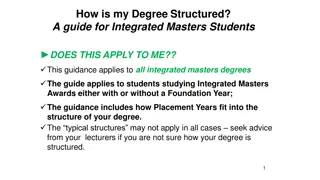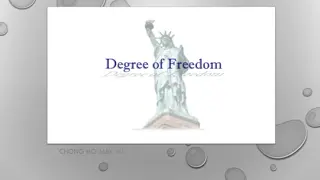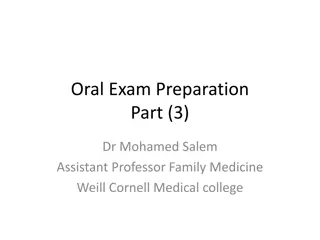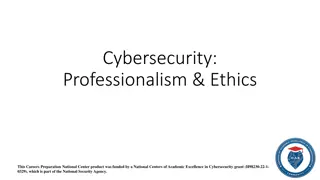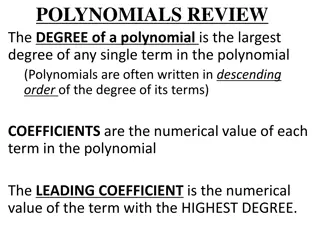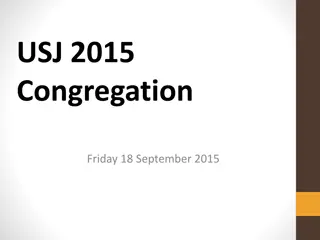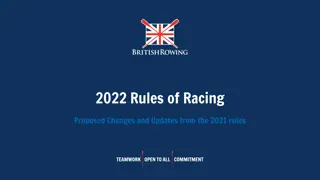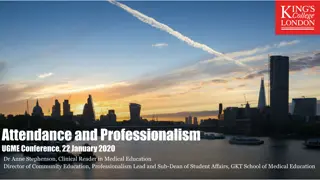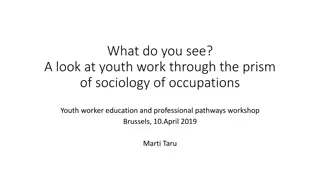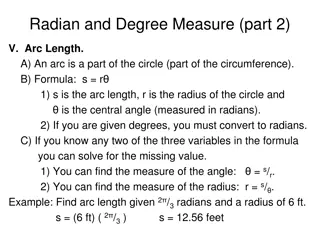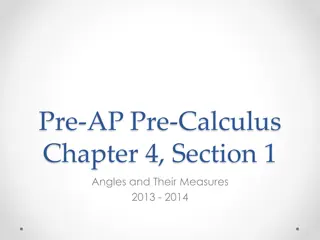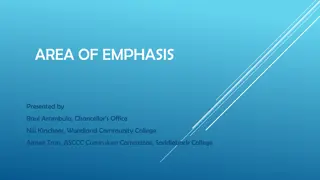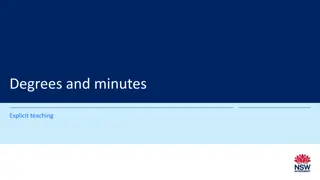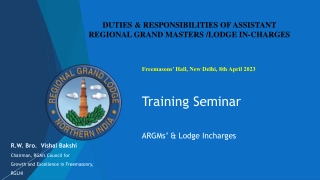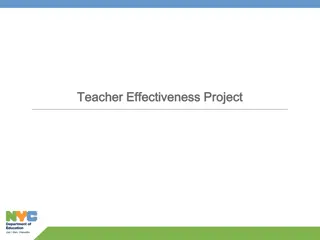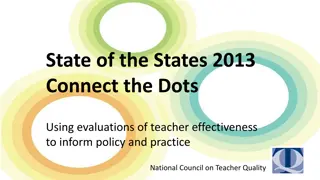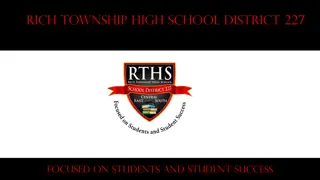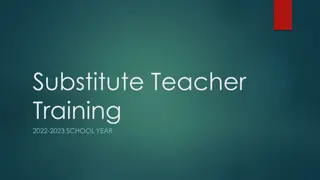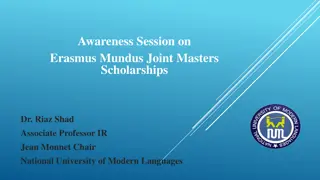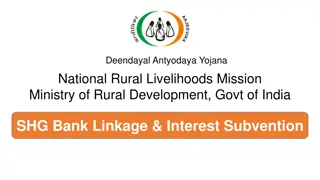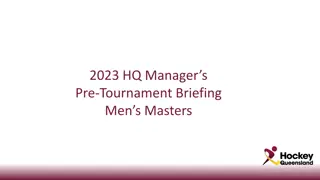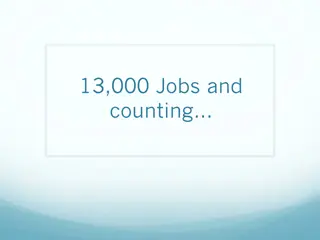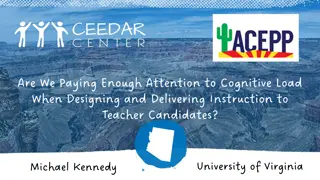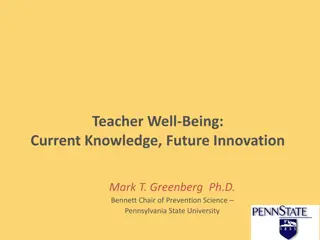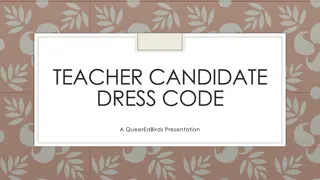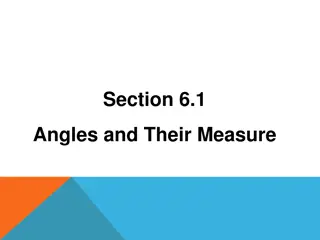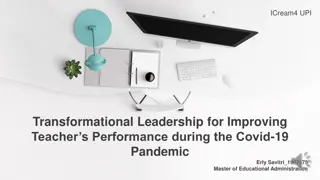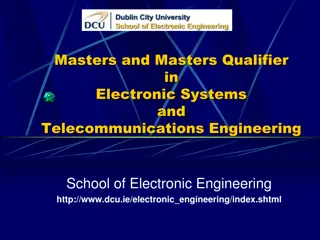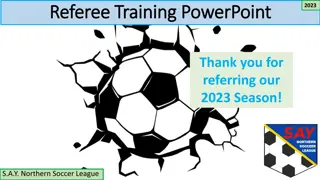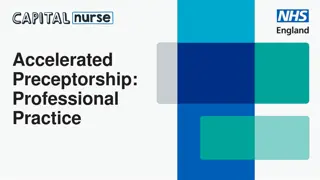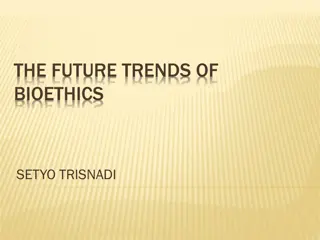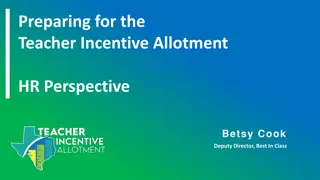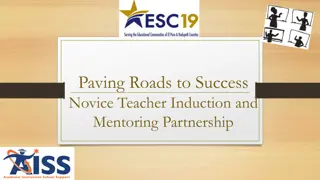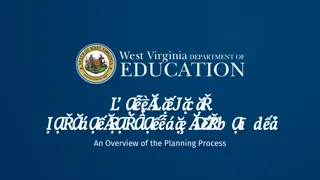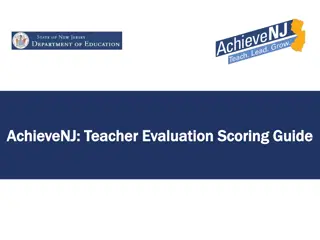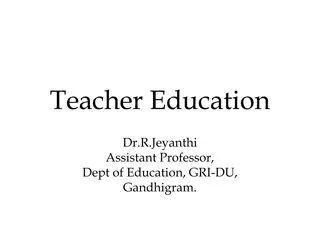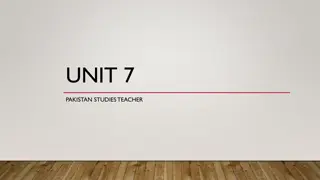Exploring the Role of Master's Degrees in Teacher Professionalism
Delve into the discourse surrounding the relevance and impact of master's degrees for teachers, examining their potential to enhance professional development, critical understanding, and practical mastery within the field of education. Consider various perspectives on the significance of advanced qualifications and the tensions between different educational approaches.
- Teacher Professionalism
- Masters Degrees
- Professional Development
- Education Discourse
- Teacher Training
Download Presentation

Please find below an Image/Link to download the presentation.
The content on the website is provided AS IS for your information and personal use only. It may not be sold, licensed, or shared on other websites without obtaining consent from the author. Download presentation by click this link. If you encounter any issues during the download, it is possible that the publisher has removed the file from their server.
E N D
Presentation Transcript
MASTERS: A ROUTE TO TEACHER PROFESSIONALISM TEAN at Aston June 2013 Bob Burstow
Questions Is the advent, and increasing acceptance of, a master s degree for teachers nothing more than an extension of the technicality of legitimising a qualification already identified as post-graduate ? Is this more than just opportunism and an extension of the top-down passive-recipient form of CPD? Does a master s qualification actually confer any significant or extra factor?
Answers QAA 2011 TEAN 2009 A systematic understanding of knowledge a level of professional accomplishment, a disposition towards enquiry and the use of research to inform teaching , critical awareness of current problems and/or new insights a recognition of complexity and the necessity of engaging in on-going understanding of complex matters . comprehensive understanding of techniques originality in the application of knowledge mastery of a professional repertoire attests to professional and academic accomplishment all teachers should be masters of their profession practical understanding conceptual understanding enabling the critical evaluation of current research skilled performance mastery
Answers An effective form of professional development in terms of the self-image of participants and changes in their practice (Seabourne 2009) A high level understanding of the way in which theory and cutting edge research informs practice (Burstow & Maguire 2013)
Issues The medieval idea of artists, masons and other skilled trades producing master- works as a transition point between journeyman and mastery levels. (Hopkins 2010) The idea of a practice-focussed (or pedagogy focussed) degree recognising mastery of practice within the classroom The more theoretically- focussed master s degree conferring (developing?) mastery of the specialist subject
Tensions? The Higher Education disposition of enquiry The government view of the apprenticeship of teachers Viewpoint Profession Craft Beneficiary Individual Organisation Source of initiative Bottom-up Top-down
Mastery: So how can we tell? Stance distance - moving away from the emotive personal Inspiration the light bulb moment Change in practice, approach, understanding Confidence encouraged by depth of understanding
Mastery: Testing the idea Anecdotal/observational Examples of changes in practice: Geography PE Year 6 Primary Ofsted inspections Analytical
So can't you get there just by experience? Yes but: Speed of arrival 2 to 3 years as opposed to a lifetime (but not instant primary teachers researching their own classrooms) Parochialism/breadth and depth of vision You may become a master in your own establishment (eg the old Senior Masters who predated AST and Assistant Head posts) but for that school only Applicability across different establishments (for comparative craft situations see Sturt, G, 1963,The Wheelwrights Shop, CUP)
Tension a third way? The Higher Education disposition of enquiry The government view of the apprenticeship of teachers The school as organisation might expect to gain more from their staff studying a practice based masters The collegiality inherent in many of the current practice- based degrees might be expected to generate a stronger coherent reflective and proactive workforce
Thank you Burstow, B. & Maguire, M. 2013. Disentangling What it Means to be a Teacher in the Twenty-first Century: Policy and Practice in Teachers Continuous Professional Learning. In: MCNAMARA, O. (ed.) Teacher learning in the workplace: widening perspectives on practice and policy. London: Springer Burstow, B. & Winch, C. 2013. Providing for the Professional Development of Teachers in England: a contemporary account of a government led intervention. Professional Development in Education in press. Daly, C., Pachler, N. & Lambert, D. 2004. Teacher learning: towards a professional academy. Teaching in Higher Education, 9, 99-111. DCSF 2008. Being the best for our children: Releasing talent for teaching and learning. Nottingham: Department for Children Schools and Families. Seabourne, P. 2009. TDA: A longitudinal review of the postgraduate professional development of teachers. UCET. Teaching a Masters profession? The continuing conversation. UCET, 2009


